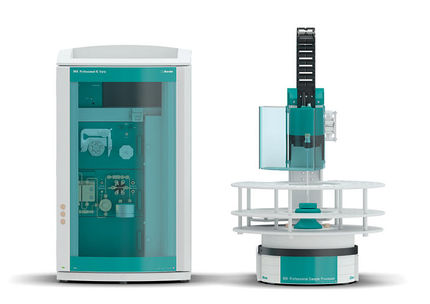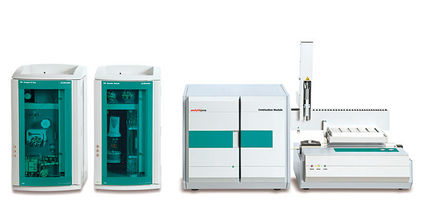To use all functions of this page, please activate cookies in your browser.
my.chemeurope.com
With an accout for my.chemeurope.com you can always see everything at a glance – and you can configure your own website and individual newsletter.
- My watch list
- My saved searches
- My saved topics
- My newsletter
Event generatorEvent generators are software libraries that generate simulated high-energy particle physics events[1][2]. Product highlightDespite the simple structure of the tree-level perturbative quantum field theory description of the collision and decay processes in an event, the observed high-energy process usually contains significant amount of modifications, like photon and gluon bremsstrahlung or loop diagram corrections, that usually are too complex to be easily evaluated in real calculations directly on the diagrammatic level. Furthermore, the non-perturbative nature of QCD bound states makes it necessary to include information that are outside the perturbative quantum field theory, and well beyond present ability of computation in lattice QCD. And in collisional systems more complex than a few leptons and hadrons (e.g. heavy-ion collisions), the collective behavior of the system would involve a phenomenological description that also cannot be easily obtained from the fundamental field theory by a simple calculus. Any realistic test of the underlying physical process in a particle accelerator experiment, therefore, requires an adequate inclusion of these complex behaviors surrounding the actual process. Based on the fact that in most processes, a factorization of the full process into individual problems is possible (which means a negligible effect from interference), these individual processes are calculated separately, and the probabilistic branching between them are performed using Monte Carlo methods. The final-state particles generated by event generators can be fed into the detector simulation, allowing a precise prediction and verification for the entire system of experimental setup. However, as the detector simulation is usually a complex and computationally expensive task, simple event analysis techniques are also performed directly on event generator results. A typical hadronic event generator simulates the following subprocesses:
A typical heavy-ion event generator usually can be less strict in simulating the rare and rather negligible processes found in a hadronic generator, but would need to simulate the following subprocesses, in addition to those in a hadronic generator:
Partly due to historic reasons, most event generators are written in FORTRAN 77, with a few C++ generators slowly emerging in recent years. The Particle Data Group maintains a standard for designating Standard Model particles and resonances with integer codes in event generators (also known as the "PDG code"). List of event generatorsThe major event generators that are used by current experiments are: Hadronic event generators[3]
Heavy ion event generators
Neutrino event generators
Specialized event generators
"Meta-generator"
References |
| This article is licensed under the GNU Free Documentation License. It uses material from the Wikipedia article "Event_generator". A list of authors is available in Wikipedia. |







